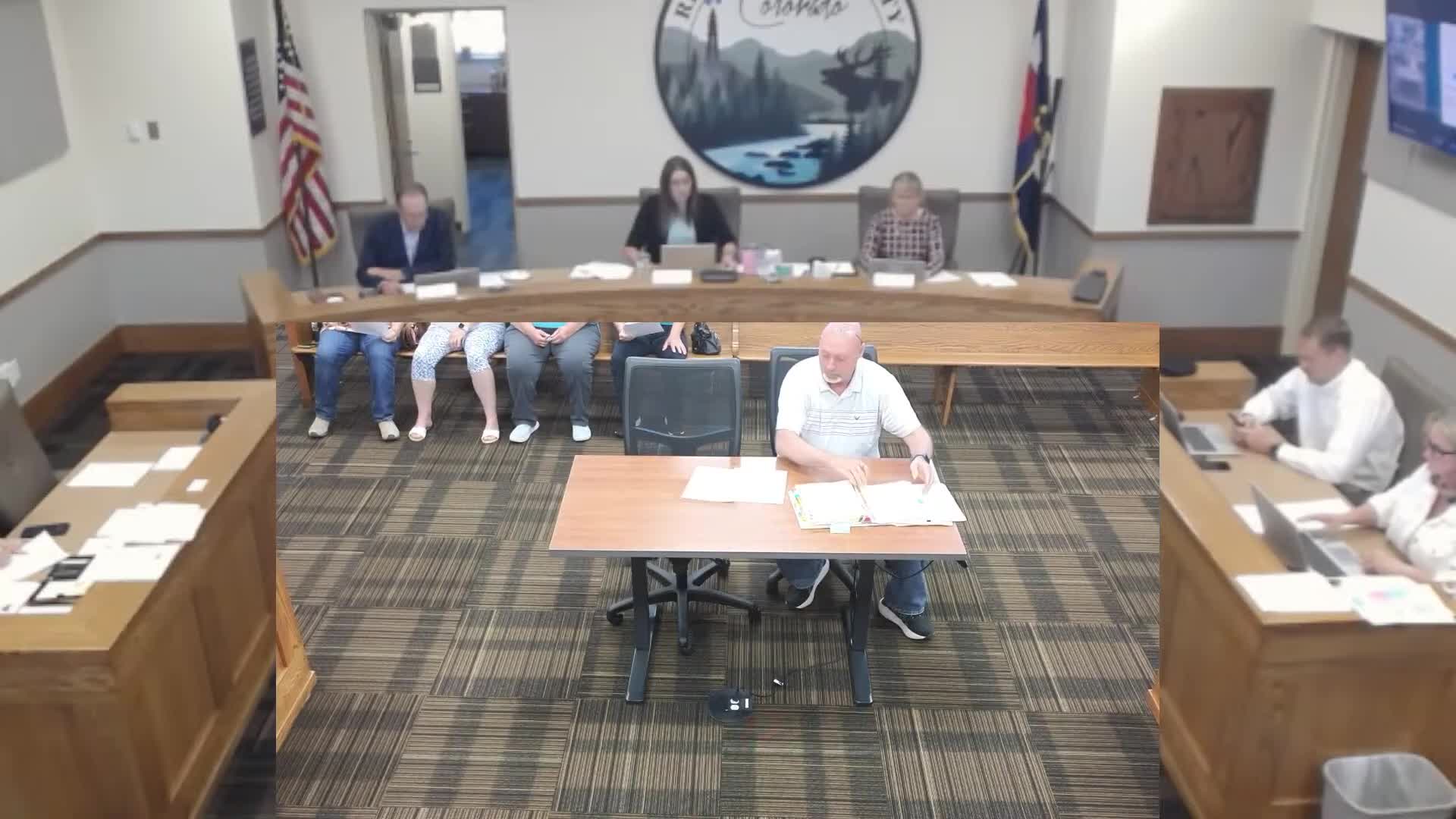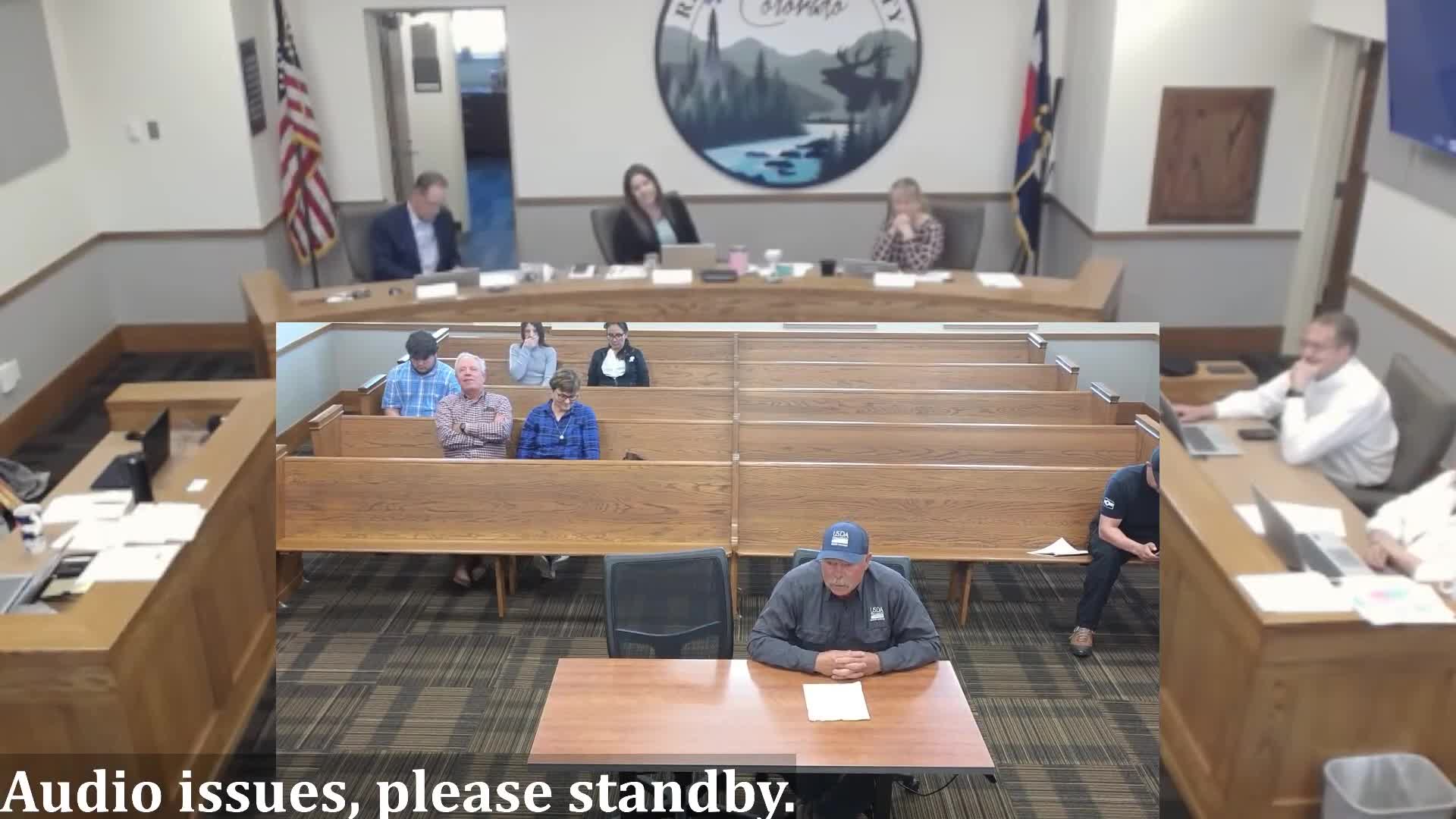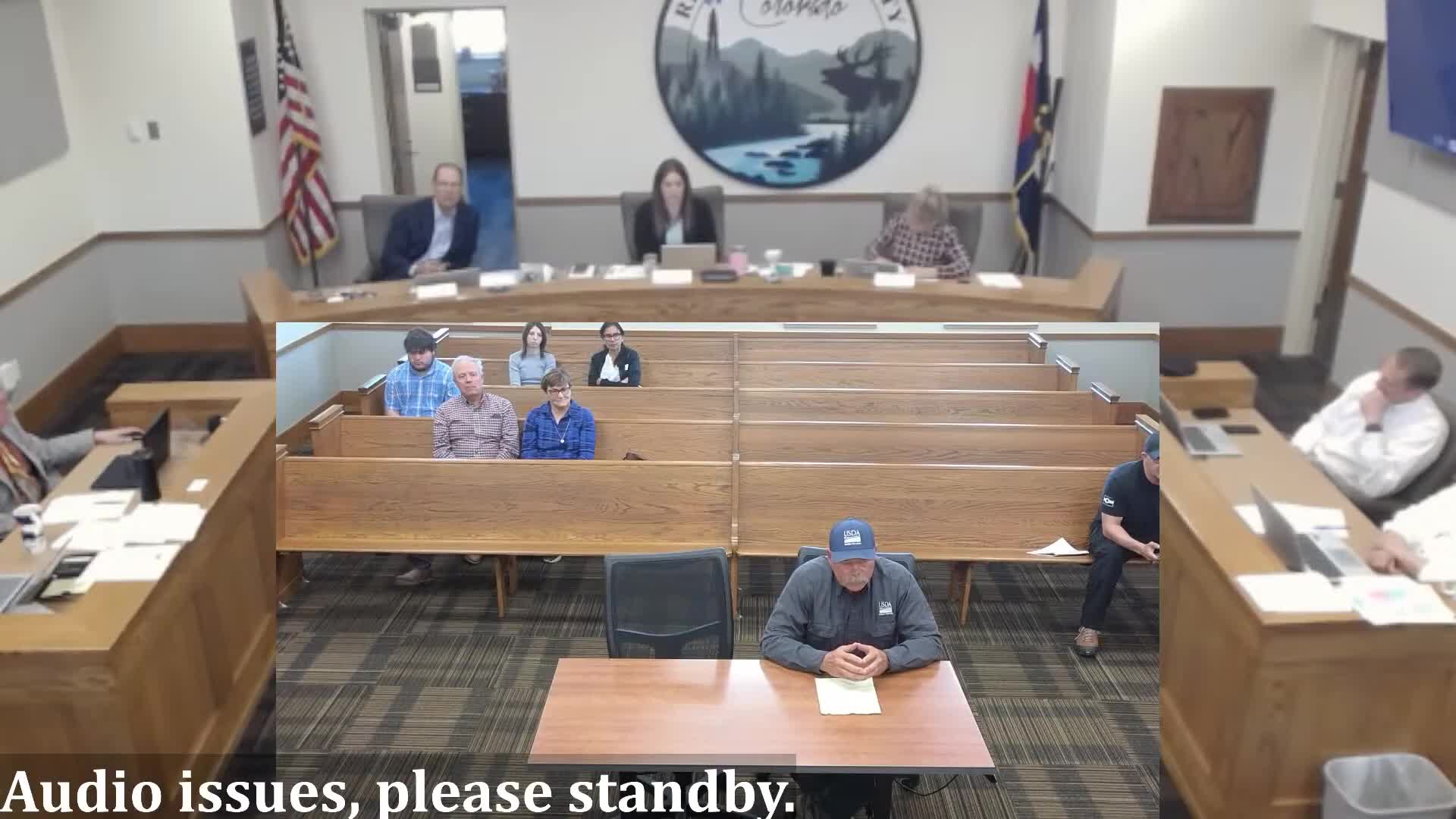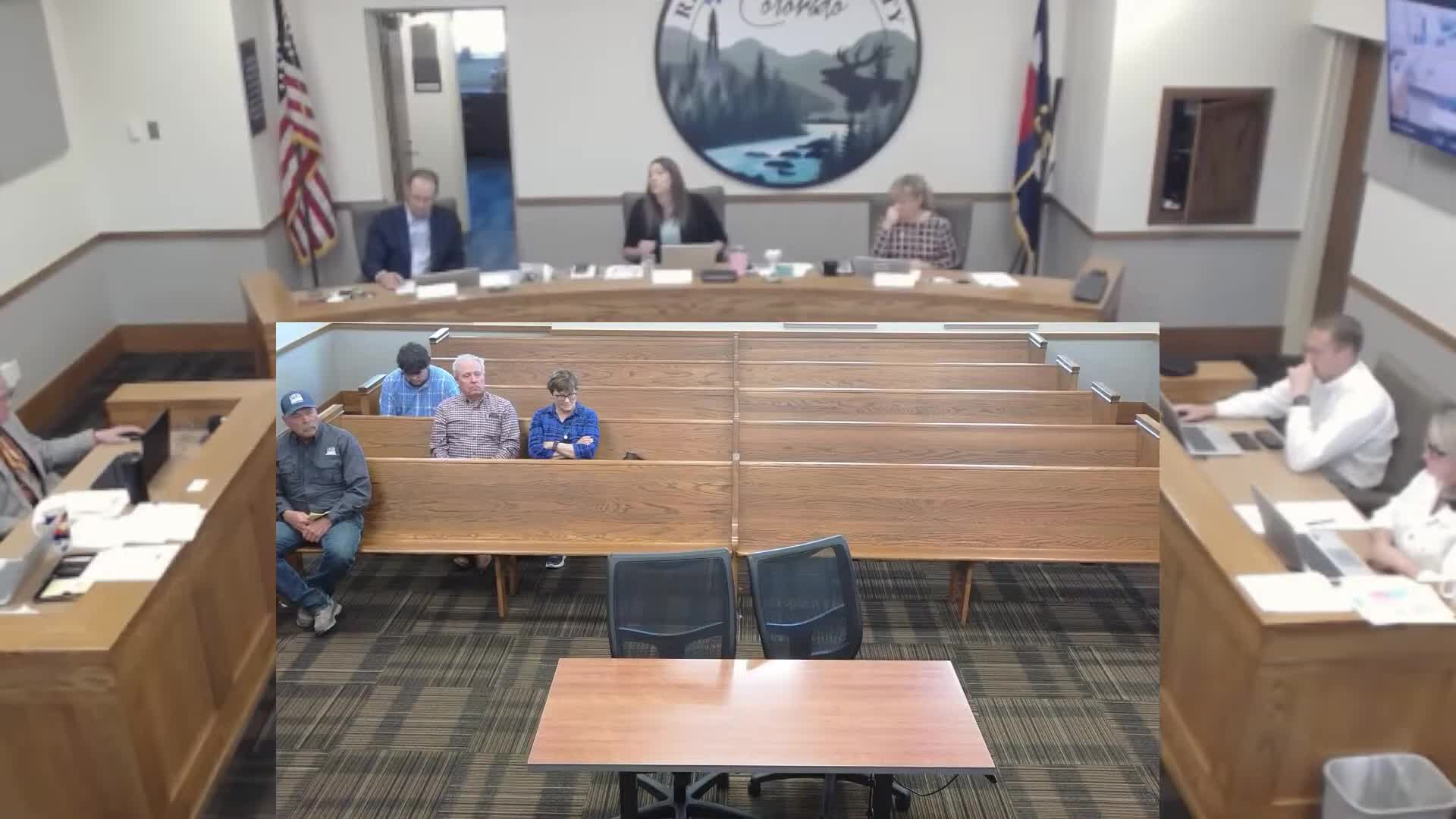Article not found
This article is no longer available. But don't worry—we've gathered other articles that discuss the same topic.

Rio Blanco County: Commissioners approve range of contracts, appointments and letters; several items tabled

Commissioners direct staff to collect county policies into a central location and explore HR/payroll systems

County approves CJIS access for local child‑welfare staff with training and audit requirements

Rio Blanco County ratifies letter opposing Smart Wolf ballot initiative; local coalition plans response

Rio Blanco County imposes one‑year moratorium on natural medicine/healing centers

